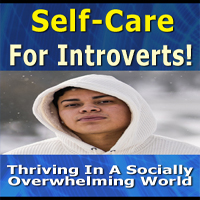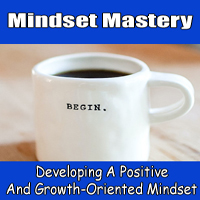


Overcoming Emotional Baggage From The Past

Emotional baggage from the past, often rooted in past experiences, unresolved conflicts, and painful memories, can weigh us down, affecting our emotional well-being and present relationships. However, it is entirely possible to unburden our hearts and find relief from the emotional baggage that holds us back.
Understanding Emotional Baggage
Emotional baggage encompasses negative emotions, fears, and limiting beliefs that result from unresolved past experiences. These experiences can range from childhood trauma to failed relationships, losses, or personal setbacks. Over time, these unresolved emotions and beliefs can become a heavy load that affects our everyday lives.
Acknowledge And Identify The Baggage
The first step in overcoming emotional baggage is to acknowledge its existence and identify the specific emotions, experiences, or beliefs that contribute to it. Reflect on past experiences and their emotional impact, and recognize the patterns or triggers that continue to affect your life.
Emotional Processing And Acceptance
Emotional processing involves allowing yourself to feel and accept the emotions associated with past experiences. This can be a difficult and sometimes painful process, but it is essential for healing. Give yourself permission to experience the full range of emotions, without judgment or self-criticism.
Seeking Support
Overcoming emotional baggage is not a journey you have to undertake alone. Reach out to trusted friends, family, or a therapist for support. Talking about your feelings and experiences can provide valuable insights, different perspectives, and emotional validation.
Forgiveness, Including Self-Forgiveness
Forgiveness is a powerful tool for unburdening emotional baggage. This includes forgiving those who have hurt you and, equally importantly, forgiving yourself. Forgiveness is a means of releasing the emotional grip of the past and moving forward.
Setting Healthy Boundaries
Establishing and maintaining healthy boundaries is a crucial aspect of overcoming emotional baggage. These boundaries protect your emotional well-being and prevent further harm. They also help you navigate future relationships with a sense of self-respect and self-worth.
Self-Reflection And Personal Growth
Self-reflection is an important component of emotional healing and growth. Examine the impact of your past experiences on your current beliefs and behavior. Use self-reflection as a tool to understand your triggers and make more informed decisions.
Release And Let Go
Letting go of emotional baggage involves consciously releasing the negative emotions and beliefs that have held you back. This process can include writing down your thoughts, participating in mindfulness or meditation, or engaging in rituals that symbolize release.
Overcoming emotional baggage from the past is a transformative journey, but one that is well worth undertaking. By acknowledging, processing, and seeking support for your emotional baggage, you can unburden your heart and find relief. Remember that healing is a gradual process, and it's okay to take your time. The ultimate goal is to live a life free from the weight of the past, allowing you to experience greater emotional well-being, healthier relationships, and a brighter future. You have the power to let go of the baggage and step into a lighter, more liberated version of yourself.


Confronting Self-Doubt
 The Perfectionist Devil
The Perfectionist Devil
One of the primary inner demons of impostor syndrome is the Perfectionist Devil. This relentless voice inside your head demands flawlessness in every aspect of your life. It convinces you that any mistake or imperfection is a sign of incompetence, fostering the fear of being exposed as a fraud. The Perfectionist Devil constantly sets unattainable standards, leaving you in a perpetual state of self-critique.
The Comparison Fiend
Another formidable inner demon is the Comparison Fiend. It prompts you to constantly compare yourself to others, magnifying their accomplishments while diminishing your own. This toxic habit leads to the unwarranted conclusion that you are not as talented or capable as those around you. The Comparison Fiend makes you believe that your achievements are mere flukes in the shadow of others' excellence.
The Self-Devaluation Monster
The Self-Devaluation Monster thrives on undervaluing your own capabilities and accomplishments. It convinces you that your successes are merely the result of luck, timing, or external factors, rather than your own efforts and abilities. This demon erodes your self-worth and makes you feel undeserving of recognition and praise.
The Fear Of Failure Ogre
The Fear of Failure Ogre is an inner demon that paralyzes you with the fear of making mistakes.






Unlocking Your Full Potential
 Root Causes Of Insecurity
Root Causes Of Insecurity
Insecurity can have multiple root causes, which may vary from person to person. Some common factors include:
Past Traumas: Past negative experiences or traumatic events can leave emotional scars that contribute to insecurity.
Social Comparisons: Constantly comparing yourself to others can fuel feelings of inadequacy and insecurity.
Childhood Experiences: Early childhood experiences, such as upbringing and parenting, can play a significant role in shaping one's self-esteem.
Negative Self-Image: A poor self-image or negative body image can lead to feelings of insecurity.
Fear Of Rejection: The fear of being rejected or judged by others can perpetuate insecurity.
Strategies For Overcoming Insecurity
Overcoming insecurity is a journey that requires self-awareness and a commitment to personal growth. Here are some strategies to help you conquer insecurity and unlock your full potential:
Self-Acceptance: Embrace who you are, including your imperfections. Understand that nobody is perfect, and self-acceptance is the first step to overcoming insecurity.
Positive Self-Talk: Challenge and replace negative self-talk with affirmations that emphasize your strengths and accomplishments.
Set Realistic Goals: Set achievable goals and focus on the progress you make, rather than perfection.
Face Your Fears: Gradually expose yourself to situations that trigger your insecurities. Over time, you'll build confidence in these areas.
Seek Support: Talk to friends, family, or a therapist about your feelings of insecurity. Sharing your concerns with trusted individuals can provide valuable support and perspective.
Introverts' Unique Communication Style
 1. Thoughtful And Deliberate: Introverts are known for their thoughtful and deliberate approach to communication. They carefully consider their words and responses, often preferring to think before they speak. This quality ensures that their contributions to conversations are well-thought-out and meaningful.
1. Thoughtful And Deliberate: Introverts are known for their thoughtful and deliberate approach to communication. They carefully consider their words and responses, often preferring to think before they speak. This quality ensures that their contributions to conversations are well-thought-out and meaningful.
2. Active Listening: Introverts excel in the art of active listening. They pay close attention to what others are saying, often engaging in conversations with the intent to understand rather than merely respond. Their attentive listening fosters deeper connections and more profound exchanges.
3. Depth Over Small Talk: Introverts tend to avoid small talk and superficial conversations. Instead, they gravitate toward discussions with substance, delving into meaningful topics that allow for greater understanding and connection. Their preference for depth over breadth is a hallmark of their communication style.
4. Introvert Pause: Introverts sometimes have a brief pause before responding in conversations. This is not a sign of hesitation or disinterest but rather a reflection of their penchant for thoughtful responses. They take this time to process and ensure that their contributions align with their intended message.
 1. Recharging In Solitude: Introverts have a well-documented need for solitude and personal space to recharge their mental and emotional energy. Privacy is the key to creating this space for themselves, allowing them to unwind, reflect, and regain their vitality. Without these moments of privacy, introverts can feel drained and overwhelmed.
1. Recharging In Solitude: Introverts have a well-documented need for solitude and personal space to recharge their mental and emotional energy. Privacy is the key to creating this space for themselves, allowing them to unwind, reflect, and regain their vitality. Without these moments of privacy, introverts can feel drained and overwhelmed.
2. Self-Reflection And Growth: Personal boundaries give introverts the freedom to engage in self-reflection and personal growth. They can use this space to assess their goals, values, and beliefs, which leads to a deeper understanding of themselves and the world around them. It's in this private realm that they discover their passions and set the course for their life's journey.
3. Creative Freedom: Privacy fosters an environment in which introverts can fully explore their creativity. They often have a rich inner world brimming with imaginative ideas. These personal boundaries offer them the space they need to nurture their creative endeavors without external interruptions or judgments.
4. Emotional Regulation: Introverts use their privacy to regulate their emotions effectively. When feeling overwhelmed or stressed, they can retreat to their personal space to process their feelings and regain emotional balance. This is essential for their mental health and overall well-being.
The Journey Within Through Solitude
 Solitude is not synonymous with loneliness or isolation; rather, it is a deliberate and purposeful choice to spend time alone, free from external distractions. It is in these quiet moments that we have the opportunity to connect with our inner selves and uncover the wellspring of inner peace that often remains hidden beneath the surface.
Solitude is not synonymous with loneliness or isolation; rather, it is a deliberate and purposeful choice to spend time alone, free from external distractions. It is in these quiet moments that we have the opportunity to connect with our inner selves and uncover the wellspring of inner peace that often remains hidden beneath the surface.
Finding inner peace through solitude begins with the act of slowing down. In a world that glorifies busyness, it can be challenging to pause and embrace the stillness. However, when we create a space for solitude, we allow ourselves to step away from the frantic pace of life, unplug from technology, and escape the constant noise. This simple act of slowing down is the first step towards finding peace within.
Solitude provides the environment for deep self-reflection. As we sit in the silence and listen to our thoughts and feelings without the interference of external influences, we gain insight into our own inner world. We can uncover the sources of stress, anxiety, and restlessness, and begin to address and heal them. This self-awareness is a crucial aspect of finding inner peace.
Moreover, solitude nurtures mindfulness. It encourages us to be fully present in the moment, appreciating the simple pleasures of life.